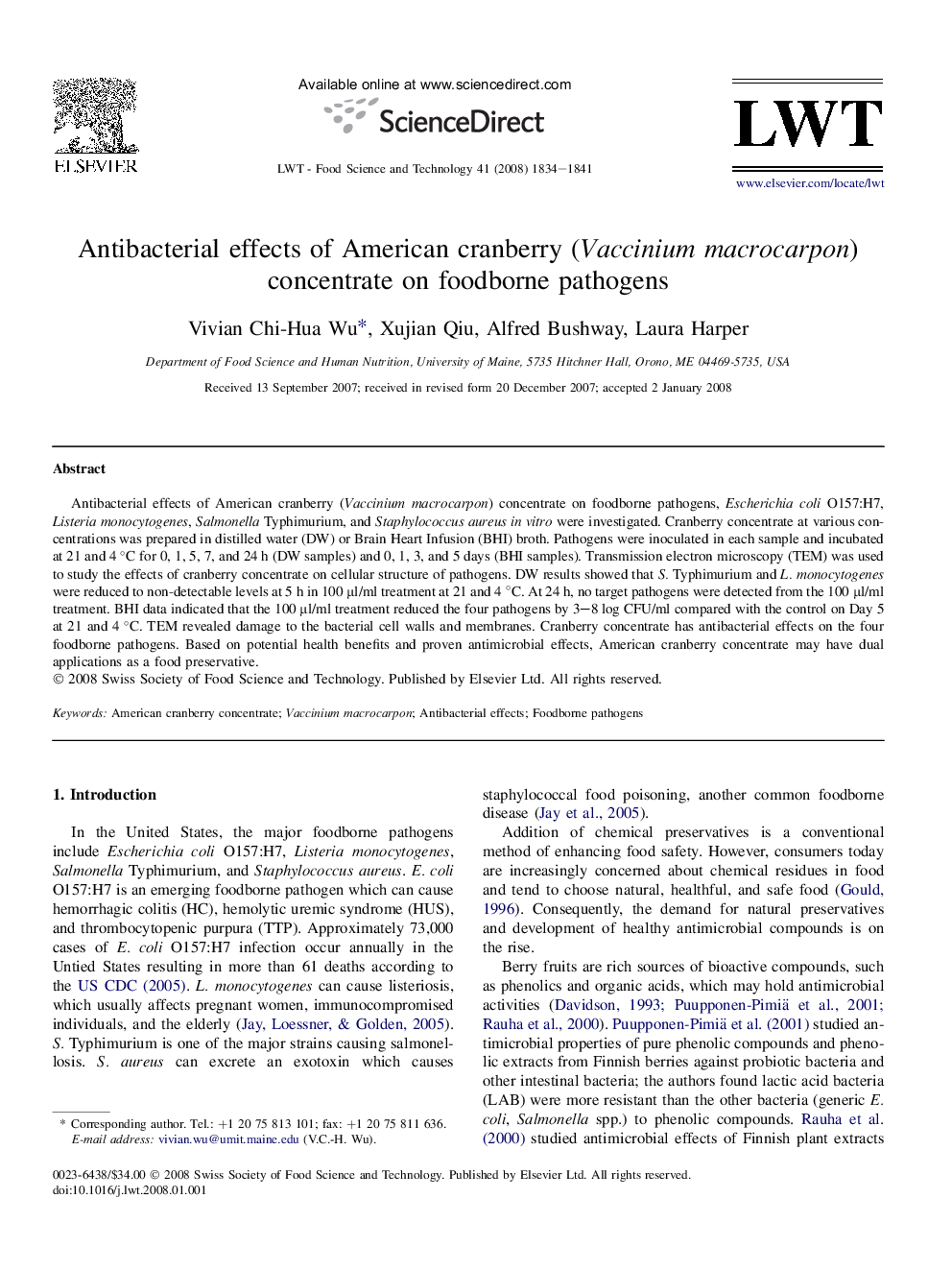| Article ID | Journal | Published Year | Pages | File Type |
|---|---|---|---|---|
| 4565117 | LWT - Food Science and Technology | 2008 | 8 Pages |
Antibacterial effects of American cranberry (Vaccinium macrocarpon) concentrate on foodborne pathogens, Escherichia coli O157:H7, Listeria monocytogenes, Salmonella Typhimurium, and Staphylococcus aureus in vitro were investigated. Cranberry concentrate at various concentrations was prepared in distilled water (DW) or Brain Heart Infusion (BHI) broth. Pathogens were inoculated in each sample and incubated at 21 and 4 °C for 0, 1, 5, 7, and 24 h (DW samples) and 0, 1, 3, and 5 days (BHI samples). Transmission electron microscopy (TEM) was used to study the effects of cranberry concentrate on cellular structure of pathogens. DW results showed that S. Typhimurium and L. monocytogenes were reduced to non-detectable levels at 5 h in 100 μl/ml treatment at 21 and 4 °C. At 24 h, no target pathogens were detected from the 100 μl/ml treatment. BHI data indicated that the 100 μl/ml treatment reduced the four pathogens by 3–8 log CFU/ml compared with the control on Day 5 at 21 and 4 °C. TEM revealed damage to the bacterial cell walls and membranes. Cranberry concentrate has antibacterial effects on the four foodborne pathogens. Based on potential health benefits and proven antimicrobial effects, American cranberry concentrate may have dual applications as a food preservative.
